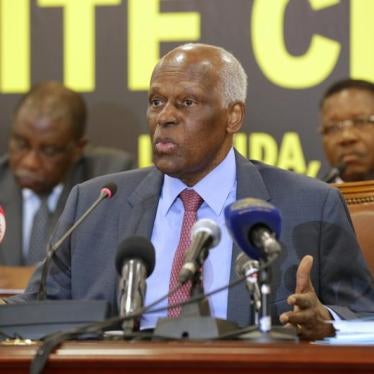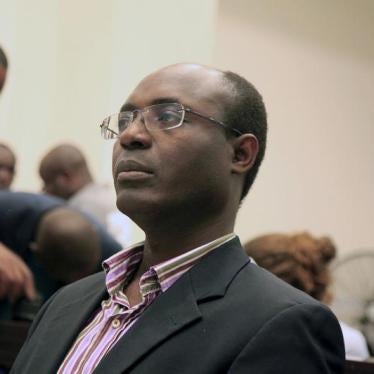Angolan authorities have moved to ban protests and demonstrations by groups not running in next week’s parliamentary elections.
The August 23 elections will take place in an environment marred by severe restrictions on freedom of expression and assembly, and limited access to information due to government repression and censorship in state media and in private media outlets controlled by ruling party officials.
In a document distributed to the media and quoted by Angolan News Agency, the Ministry of the Interior said street protests planned by activists pose a security risk and “may clash with activities of political parties.”
The ban does not affect groups that intend to hold activities in support of a political party, provided the activity is authorized by local authorities.
While governments may place reasonable time and place restrictions on the right to peaceful assembly, an electoral campaign does not permit the government to place broad bans on freedom of expression, whether on political parties or those not directly participating in the vote.
This principle is reflected in article 47 of Angola’s Constitution, which guarantees the right of all citizens to protest without pre-authorization, provided they inform authorities in advance. However, during the pre-election period, the government has repeatedly blocked peaceful anti-government protests with intimidation and arbitrary arrest and detention. On the rare occasions when protests were not prevented, the police responded with unnecessary or excessive use of force.
Demonstrations during the electoral process are not exclusive to political parties or individuals contesting elections. The Angolan government should not use security as an excuse to restrict people’s rights to free expression and peaceful assembly. They should allow all citizens to actively participate in the upcoming elections, whether through public debates or street demonstrations, as well as casting their ballots.










